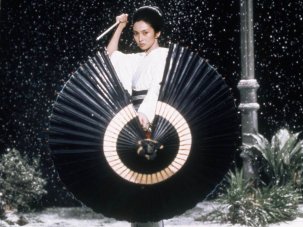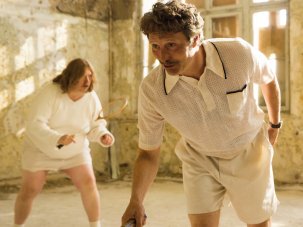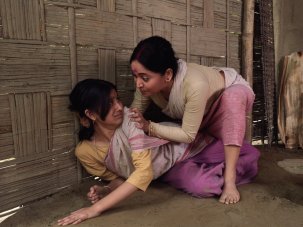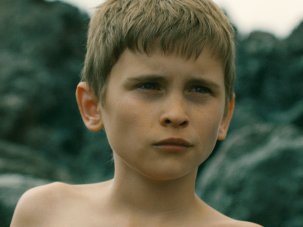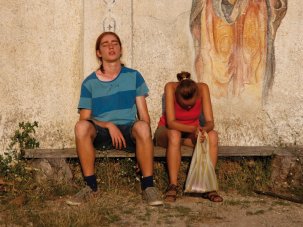Aferim!
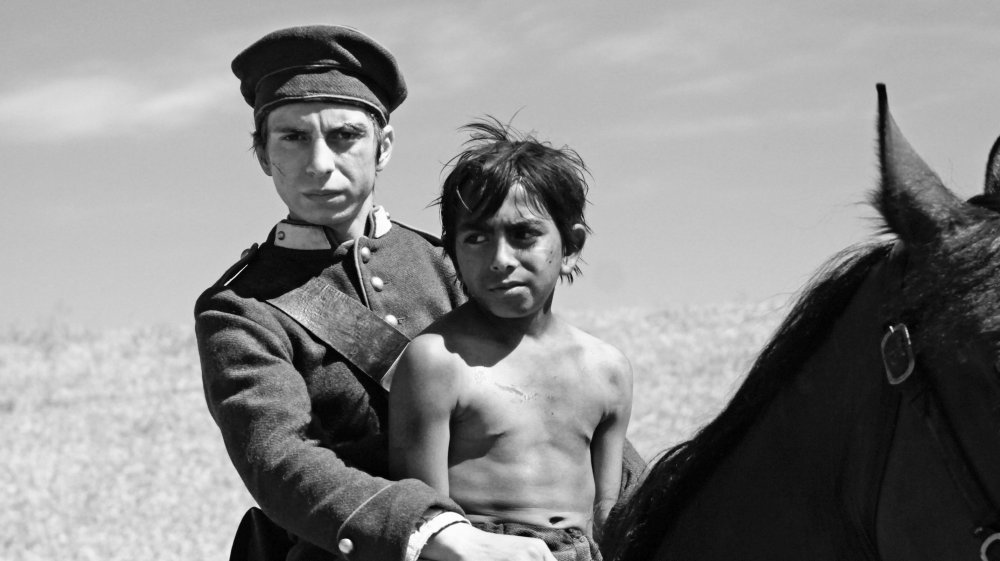
Aferim! (2015)
What’s it about?
Riding through the wild Wallachian landscape of the 1830s, a constable and his son go in search of a runaway slave, a Roma said to have seduced the wife of his ‘boyar’ master. Their quest sees them encountering various helpful or hostile individuals, and beginning to wonder about the culprit’s guilt.
Who made it?
A leading light of Romania’s revitalised filmmaking scene, Radu Jude was assistant director on Cristi Puiu’s The Death of Mr. Lazarescu (2005) before impressing many with his own The Happiest Girl in the World (2009) and Everybody in Our Family (2012). With this third feature he was deserving co-winner of the best director prize at the Berlin Film Festival.
What’s special about it?
While Aferim! resembles Jude’s first two features in its precarious but precise balancing of serious drama and black satirical humour, it differs from them in that it’s a period piece; indeed, one might almost describe it as a Romanian western. But it’s a historical film like very few others: thanks to brilliantly colourful but credibly archaic dialogue (which is both constantly imaginative and often extremely funny), it succeeds in vividly evoking a society whose very modes of thinking about the world were fundamentally at odds with our own. But not, perhaps, so inferior; Jude subtly scatters sly reminders that certain barbaric attitudes which held sway in the Ottoman Empire may not have disappeared altogether.
It’s relevant, then, but also a joy to behold: the striking black-and-white ’Scope camerawork is characteristic of the film’s overall boldness and fruitful attention to detail.
Jia Zhangke, a Guy from Fenyang
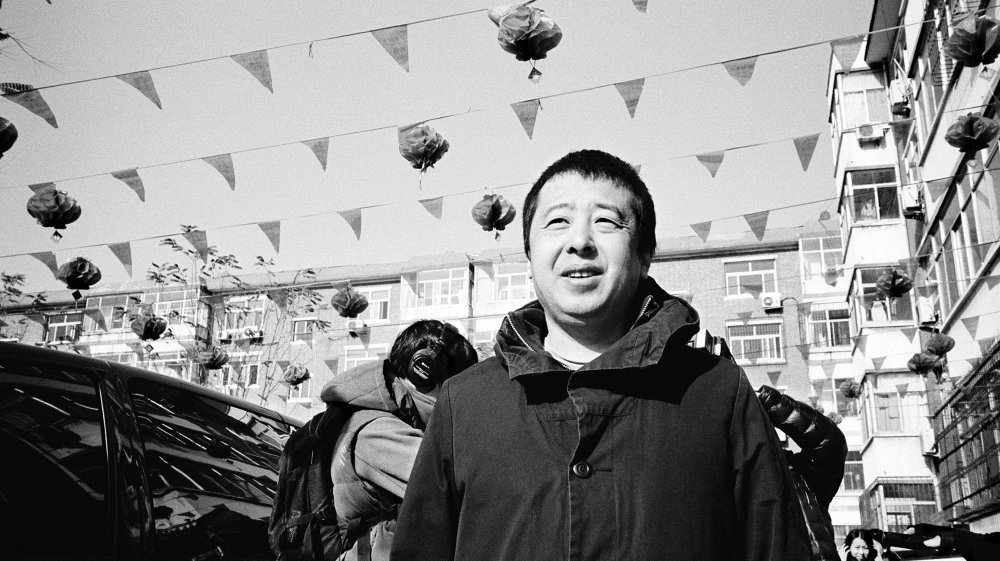
Jia Zhangke, a Guy from Fenyang (2015)
What’s it about?
This highly illuminating documentary accompanies acclaimed Chinese auteur Jia Zhangke as he visits various places that were important to him when he was growing up in Fenyang – places also featured as locations in his films. A deft double-portrait of a man and of the society that has been his primary subject.
Who made it?
Brazil’s Walter Salles first attracted widespread attention when his Central Station won the 1998 Golden Bear in Berlin – the same year Jia was there with his debut Xiao Wu. A filmmaker of sensitivity, imagination and ambition, best known for The Motorcycle Diaries (2004), Salles here returns to non-fiction, the mode in which he began his career.
What’s special about it?
Characteristically opting for lucidity and subtlety rather than the flashy gimmickry that mars too many modern documentaries, Salles wisely lets Jia – one of the most interesting filmmakers at work today, and seemingly a very nice guy into the bargain – and various friends, family members and collaborators speak for themselves. Except that he does more than that, really: the simplicity is deceptive, and the judicious, generous use of clips from Jia’s movies ensure that we not only see what a great director he is but bear witness to how much China and the Chinese have changed over the last two decades. The latter is, of course, completely in keeping with Jia’s own abiding concerns.
Revealing without ever being intrusive, affectionate and admiring without becoming overly eulogistic or reverential, the film is both a lovely tribute by one artist to another, and an insightful exploration of the relationship between Jia’s life and his work.
The Measure of a Man
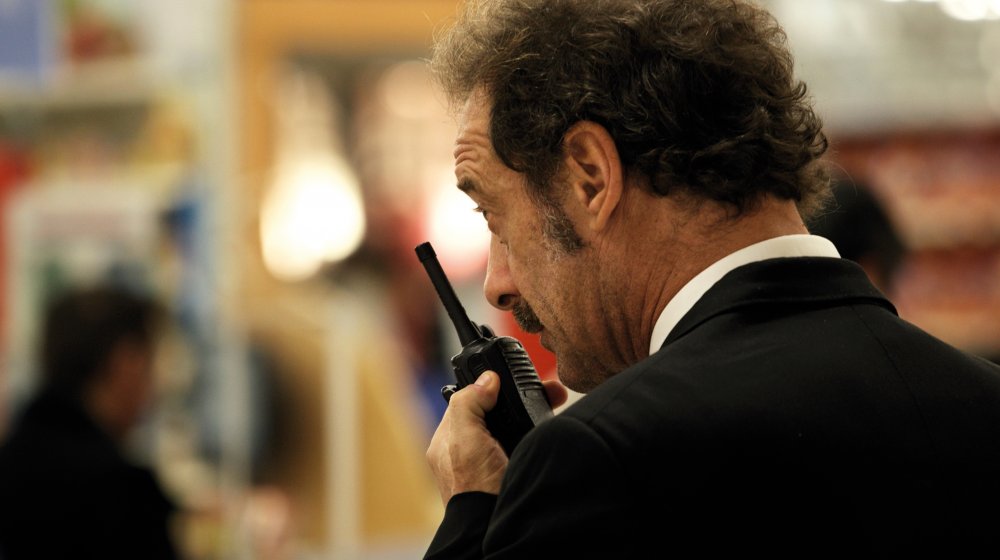
The Measure of a Man (2015)
What’s it about?
Having been unemployed for more than two years, Thierry – a middle-aged husband and father struggling to make ends meet – is understandably happy to finally land a post as security guard at a supermarket. But keeping an eye out for shoplifters, he soon learns, is not the job of his dreams…
Who made it?
If Stéphane Brizé is known at all outside France, it is for Not Here to Be Loved (2005) and Mademoiselle Chambon (2009), both low-key realist romances notable for their rewarding attention to tiny but telling details. The latter featured Vincent Lindon, who plays Thierry in Brizé’s new film – and was judged best actor in Cannes.
What’s special about it?
As his Cannes prize suggests, Lindon’s performance is extraordinarily fine: effortlessly the unsentimental embodiment of an ordinarily decent blue-collar worker – un vrai bon mec – he invests Thierry with just the right amount of spiky intelligence and moral weight. Crucially, Lindon never overshadows his colleagues: a remarkable feat, perhaps, given that he’s the only professional in the film, Brizé having otherwise cast – to terrific effect – non-actors.
But it’s not just about performance; the script perfectly nails both the nuances of working-class life and the cruel, hollow euphemisms of managerial jargon. (The French title, La Loi du marché points to the film’s concern with how ethics and individual impulses can fall prey to the constraining ideology of modern capitalism.) Deploying long takes to focus on faces, glances and gestures, Brizé steadily builds dramatic tension with scenes of real psychological and moral complexity. The result, occasionally reminiscent of a film by the Dardennes, is admirably to the point, perceptive and very powerful.




